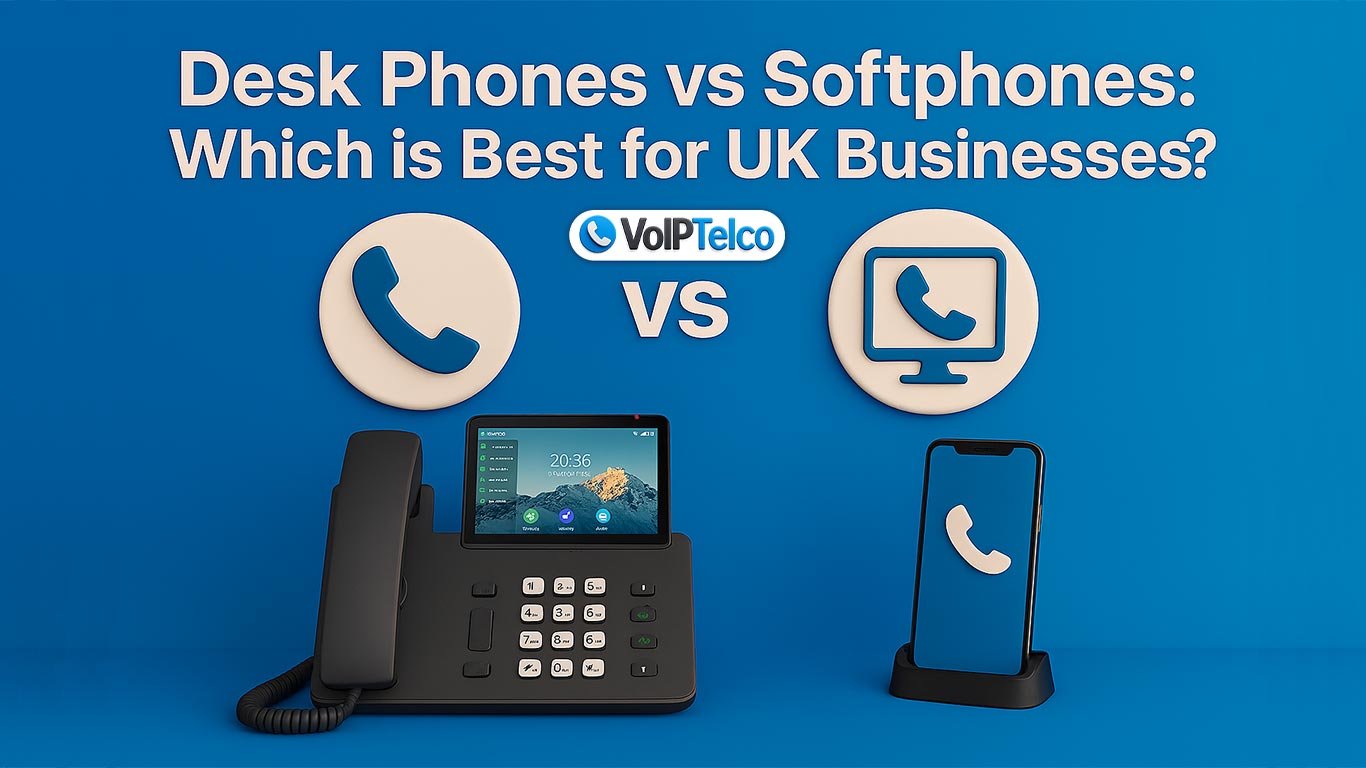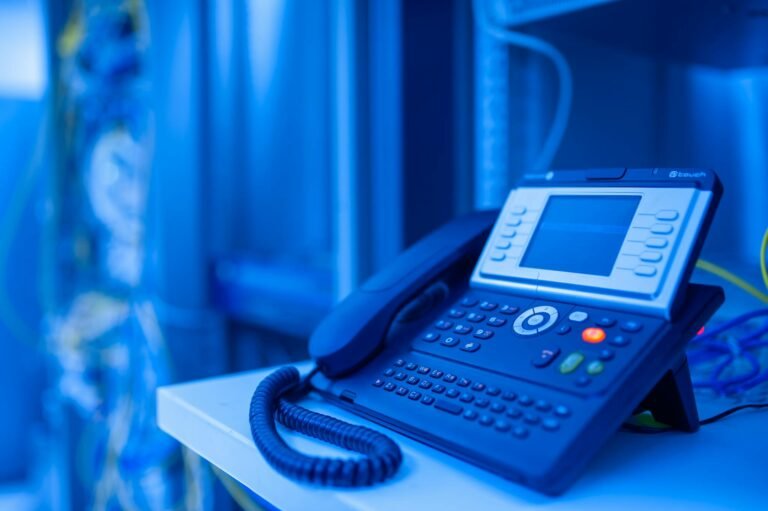Desk Phones vs Softphones: Which is Best for UK Businesses

The workplace phone has evolved from fixed handsets to flexible apps. With the UK PSTN switch-off approaching, many organisations are choosing between desk phones and softphones — or a hybrid model. This guide compares features, costs, user experience, security, and real-world use cases so you can pick the right mix for your team.
What Are Desk Phones & Softphones?
Desk Phones (SIP handsets)
Softphones (apps on desktop & mobile)
Advantages of Desk Phones
Disadvantages of Desk Phones
Advantages of Softphones
Disadvantages of Softphones
Cost Comparison
Upfront: Desk phones typically £100–£200 per handset; softphones usually £0 (use existing devices + £30–£80 headsets). Monthly: both require VoIP licences (~£10–£25/user), but desk phones add periodic hardware refreshes. Scalability: softphones provision instantly; handsets add lead time and PoE capacity planning.
| Factor | Desk Phones | Softphones |
|---|---|---|
| Upfront cost | £100–£200 per handset | £0 (uses existing devices) |
| Ongoing cost | £10–£25/user + refreshes | £10–£20/user (licence only) |
| Scalability | Slow, hardware-dependent | Instant, software login |
| Best for | Reception, call centres | Hybrid/remote teams |
Productivity & User Experience
Desk phones: tactile and familiar, minimal training, but limited integrations — staff often juggle handset + PC to access records. Softphones: integrate with Teams/CRM/service desks, support chat/file-share/video, presence and screen pops — reducing context switching and boosting response times, especially for hybrid teams.
Security & Compliance (UK)
Desk phones
Migration Strategy & Hybrid Models
Case Studies
Manchester Accountancy Firm: Hybrid rollout (15 desk phones for shared areas + 45 softphones) cut hardware spend by ~70% and reduced missed calls by ~30%.
London Property Agency: Softphones on agent mobiles (masking personal numbers) + a few desk phones in reception/boardroom improved client satisfaction within three months.
Common Mistakes to Avoid
FAQS
Final thoughts
Softphones lead on flexibility, integrations, and cost. Desk phones still shine in shared spaces, for accessibility, and where a physical presence matters. Most UK businesses get the best results with a hybrid rollout aligned to roles, backed by clear security and continuity plans.






